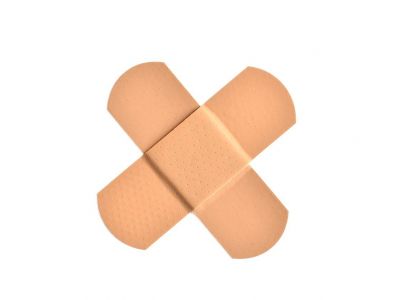IEEE Cases 1999 - Infants Under Pressure

A fictionalized case about an employee who was fired for drawing attention to a safety flaw in a medical product.
Sam Wilson, an experienced engineer was employed by MedTech, a company that made medical equipment. An important line of products were respirators, used in hospitals. A colleague of Sam asked him to check out one of these respirators, one designed for infant use. He soon determined that a relief valve intended to protect against overpressure being applied to the infant's lungs was incorrectly placed, so that, under certain circumstances, the infant could experience dangerously high pressure.
Correcting the error would not be difficult, since all that was needed was to reposition the relief valve. In similar circumstances in the past, Sam had seen such problems handled with dispatch. He called the matter to the attention of the appropriate manager and assumed that it would be taken care of.
A month or so later (Sam was not directly involved with this particular device) he learned that nothing had been done. Hundreds of these devices were already in use, and Sam was concerned about the increasing likelihood of a tragic event. He went back to the manager and urged him to take appropriate action. When the manager fended him off, Sam said that if prompt measures were not taken to correct the problem he would have to report it to the cognizant regulatory agency. The response of MedTech was to fire Sam. Apparently the then current president of MedTech did not have the same attitude toward product quality that had been prevalent in the past.
At about the same time, the respirator problem was identified by a physician who had encountered one in hospital practice. Sam brought suit against MedTech for wrongful discharge, claiming that his actions in calling attention to the problem were mandated by the code of ethics that binds professional engineers. Sam is a licensed PE. Various management changes have since occurred and the legal process is slowly moving along.
The IEEE Member Conduct Committee recommended that the IEEE file an amicus curiae brief supporting Sam on the principles involved. The IEEE Board of Directors approved such action, which is to be taken at an appropriate point in the legal proceedings.
Abridged Version:
Sam Wilson, an experienced engineer was employed by MedTech, a company that made medical equipment. An important line of products were respirators, used in hospitals. A colleague of Sam asked him to check out one of these respirators, one designed for infant use. He soon determined that a relief valve intended to protect against overpressure being applied to the infant's lungs was incorrectly placed, so that, under certain circumstances, the infant could experience dangerously high pressure. Correcting the error would not be difficult, since all that was needed was to reposition the relief valve. In similar circumstances in the past, Sam had seen such problems handled with dispatch. He called the matter to the attention of the appropriate manager and assumed that it would be taken care of. A month or so later (Sam was not directly involved with this particular device) he learned that nothing had been done. Hundreds of these devices were already in use, and Sam was concerned about the increasing likelihood of a tragic event. He went back to the manager and urged him to take appropriate action. When the manager fended him off, Sam said that if prompt measures were not taken to correct the problem he would have to report it to the cognizant regulatory agency. The response of MedTech was to fire Sam.
Questions
- Did Sam act appropriately in this situation?
- Suppose Sam had been warned ahead of time that complaining about the respirators would get him fired. Should he still have complained?
Author: Stephen H. Unger, Columbia University.
Presented at the OEC International Conference on Ethics in Engineering and Computer Science, March 1999.

